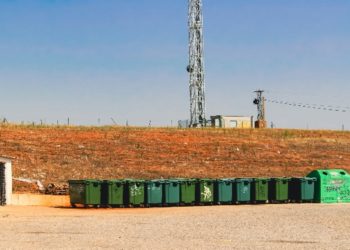Introduction
Carbon competitiveness defines market leadership and longevity. Companies now realize that there is a sound business case for sustainability irrespective of their industry. Decarbonization is quickly becoming not just a compliance measure but a strategic priority as risks from climate change increase. Reduced carbon emissions benefit more than just the environment.
Sustainability consulting services ensure that organizations’ environmental goals match their business objectives. Consulting in decarbonization advocates strategic and calculated carbon reduction, leading to concrete performance gains. Organizations that adopt sustainability will gain a serious edge amid carbon-sensitive markets.
This blog highlights how businesses can gain a carbon-competitive advantage. It explains the role of sustainability and decarbonization consulting in success.
Understanding the Importance of Carbon Competitiveness for Businesses
Carbon competitiveness signifies running profitably with little emissions. It affects how companies tackle risk management and cost reductions and calibrate stakeholder expectations. Companies with high emissions could erode reputational equity and investor confidence. Consumers demand transparency on sustainability commitments and emissions footprints.
Governments worldwide are increasingly attaching regulations to net-zero targets. Energy-gripping companies will face carbon taxes, growing penalties, and limited market access. Companies with lower emissions gain preferential access to capital and procurement channels. They attract ESG-conscious investors and long-term business partners.
Carbon-efficient operations also result in lower utility costs and reduced waste. In this context, carbon competitiveness is not optional—it’s essential for profitability and survival.
How to Gain a Carbon Competitive Advantage
Gaining a carbon-competitive advantage requires structured strategies and expert guidance. Businesses must act across four key dimensions to stay ahead.
Understand Your Business Carbon Footprint
Understanding one’s carbon footprint represents the first step in decarbonization. It shows where the source of emissions lies and where efforts should focus. A good, detailed assessment of Scope 1, 2, and 3 emissions will set clear goals for informed decision-making. Collaborating with experts in Decarbonization Consulting will contribute to ensuring that data interpretation exercises are accurate and relevant in every detail.
Implement Carbon Reduction Strategies
The ecological calculation footprint would be followed by targeted reduction efforts. Such approaches must be practical and inexpensive and should fit smoothly with broader business goals. The early movers on carbon efficiency will create environmental and economic value simultaneously. Typical areas of focus include:
- Optimizing energy use in production, lighting, and HVAC systems
- Switching to renewable energy where the infrastructure allows
- Investing in high-efficiency machinery and smart energy systems
- Adopting circular economy practices to minimize waste
- Rethinking logistics and reducing carbon-intensive transport routes
- Purchasing certified carbon offsets for residual emissions
Harness Carbon Innovation and Technology
Technological innovation offers powerful tools for emission reduction and performance tracking. Businesses that invest in new solutions can stay ahead of regulation and competition. From monitoring systems to AI-driven optimization, technology drives smarter sustainability decisions.
Collaborate with Sustainability Consultants
Working with professional consultants provides structure, accountability, and deep domain expertise. These advisors design actionable plans, assist with compliance, and help scale sustainable practices. Long-term collaboration leads to continuous improvement and a deeply embedded sustainability culture.
Understanding the Role and Benefits of Sustainability and Decarbonization Consulting to Gain Carbon Competitive Advantage
Business Transition services provide climate risk management strategies and help companies transform climate risk into strategic opportunity. These professionals offer industry insights, technical tools, and policy know-how that unlock long-term competitive advantages. Their impact is felt across multiple dimensions—from branding to compliance and market share.
Enhanced Brand Reputation
A company’s public image is more dependent on its environmental values. Concrete, visible, and verifiable actions towards sustainability work well in generating trust among consumers and stakeholders. Sustainability Consulting Services will help shape a narrative that is credible, continuous, and impactful. The reputational benefits include:
- Increased consumer trust through transparent climate commitments
- Stronger brand loyalty from eco-conscious customers
- Positive media coverage and recognition in ESG indices
- Attraction of value-aligned partners and investors
- Differentiation in saturated consumer markets
Financial Benefits
Sustainability efforts are not just ethically sound—they’re financially wise. Carbon reduction often leads to long-term cost savings through better use of resources. Consultants identify specific areas where savings can be realized while supporting ROI-driven decision-making.
- Reduced utility costs from energy-efficient upgrades
- Lower waste disposal and raw material expenses
- Streamlined operations and leaner logistics
- Access to tax credits, green incentives, and carbon funding
- Improved long-term capital allocation from sustainability-aligned budgeting
Regulatory Compliance and Risk Management
With rising environmental regulations worldwide, compliance is both a challenge and a necessity. Consultants help businesses navigate this evolving landscape with confidence. They provide regulatory foresight and guide preparation for disclosures and audits.
- Early alignment with national and international carbon mandates
- Preparation for frameworks like TCFD, CSRD, and SEC climate rules
- Reduced exposure to fines, penalties, or reputational loss
- Scenario planning for future climate-related financial risks
- Robust environmental reporting structures to satisfy investors and regulators
Market Differentiation
Sustainability provides a strategic edge in competitive markets. Companies known for environmental responsibility gain preference from both B2B and B2C buyers. Certifications, disclosures, and partnerships built on carbon reduction become strong differentiators.
- Enhanced supplier appeal for sustainability-focused clients
- Access to new markets and sustainability-linked procurement channels
- Recognition through green certifications and ecolabels
- Differentiation based on verified impact, not marketing slogans
- First-mover advantage in climate-conscious product categories
Key Components of Sustainability and Decarbonization Consulting Services
The most effective consulting engagements cover the entire journey—from diagnostics to delivery and performance tracking. A structured, staged approach ensures results are achieved efficiently and sustained over time.
Assessment and Strategy Development
The consulting process starts with a clear-eyed look at where the company stands. This involves understanding baseline emissions, resource use, and current initiatives. Based on this, consultants build tailored strategies aligned with the company’s vision.
- Full audits of carbon emissions and resource intensity
- Benchmarking against industry peers and best practices
- Prioritization of high-impact, low-cost interventions
- Creation of detailed decarbonization roadmaps
- Alignment of targets with science-based and global standards
Implementation and Execution
If a strategy is perfect, there must be an effective execution of it to materialize it into reality. Consultants are vital in assisting and managing changes. They help to operationalize sustainability plans across functional areas while engaging their internal stakeholders.
- Employee training and awareness programs
- Green procurement and supply chain realignment
- Integration of emissions targets into operational workflows
- Stakeholder communication plans to support change management
- Oversight and support for pilot projects and new technologies
Monitoring and Reporting
Continuous monitoring ensures that sustainability remains an active, measurable pursuit. Reporting systems built by consultants provide transparency, enable adjustments, and demonstrate progress to the outside world.
- Setup of real-time dashboards and emissions tracking tools
- Annual sustainability and carbon footprint reporting
- Preparation for third-party verification and audits
- Data-driven decision-making and course corrections based on metrics
Achieving a Carbon-Competitive Advantage
Businesses that fully embed carbon-conscious practices outperform their peers in multiple areas. This advantage is not only environmental—it is strategic, financial, and reputational. With the support of expert advisors, companies can systematize carbon reduction for sustained results.
- Lower operational costs due to energy and resource efficiency
- Increased access to ESG-aligned investment and financing
- Better employee morale and talent retention
- Higher brand valuation and customer loyalty
- Stronger long-term resilience to climate and market shifts
Sustainability Consulting Services and Decarbonization Consulting are critical enablers of this transformation. Their structured approach turns vision into action and ambition into measurable success.
Conclusion
Sustainability and Decarbonization Consulting provides a roadmap to carbon excellence. These services combine technical knowledge with industry-specific insights. Businesses using these tools gain environmental, economic, and reputational advantages. Carbon-competitive firms will dominate tomorrow’s low-emission marketplace.
Engaging expert consultants accelerates this transformation smoothly and strategically. It also positions companies as leaders in a climate-conscious economy. Every business should explore these services to stay future-ready. The challenges are coming, so we must act today and teach ourselves resilience. We can’t consider sustainability as optional; it is now essential for success.
David Prior
David Prior is the editor of Today News, responsible for the overall editorial strategy. He is an NCTJ-qualified journalist with over 20 years’ experience, and is also editor of the award-winning hyperlocal news title Altrincham Today. His LinkedIn profile is here.




![7 Best POS Software in the UK [2026 Edition]](https://todaynews.co.uk/wp-content/uploads/2026/02/7-Best-POS-Software-in-the-UK-2026-Edition-360x180.png)








































































